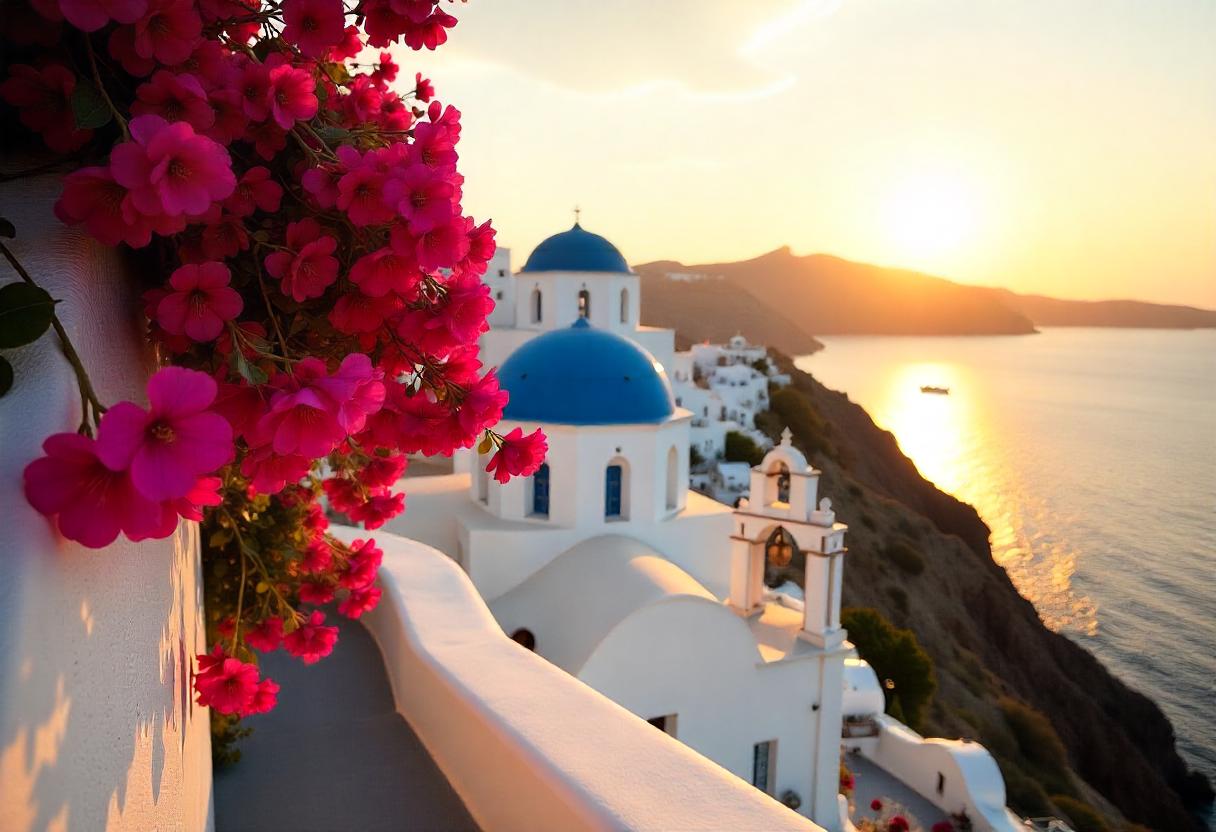Tuesday, July 1, 2025
Spain, Monaco, and Iceland continue to dominate Europe’s most expensive short-term rental markets, but Greece has now entered the elite top five as demand for its iconic islands pushes nightly prices to record highs. With average rates reaching two hundred and fifty euros during July and August 2025—and soaring to as much as seven hundred and fifty euros on Mykonos—Greece is fast becoming a luxury travel hotspot. While it still trails the top three nations, skyrocketing costs across destinations like Antiparos, Paros, and Santorini reflect a dramatic shift in the country’s holiday rental landscape, positioning it among Europe’s priciest summer destinations.
Greece Becomes One of Europe’s Most Expensive Summer Rental Markets in 2025 Amid Surging Island Prices
Greece has now secured a spot among the five priciest nations in Europe for short-term holiday stays during the summer of 2025, as average nightly rental rates surge nationwide to two hundred and fifty euros during the peak travel season of July and August. This makes Greece more costly for summer travelers than most of Europe, falling behind only Monaco, Iceland, the United Kingdom, and Spain, according to the latest market data released by AirDNA, a leading global platform specializing in short-term rental analytics.
The significant price surge reflects the increasing demand for Greek holiday experiences, especially on the country’s highly sought-after island destinations. Greece has long been a favorite among international travelers due to its blend of natural beauty, rich culture, and diverse island offerings—but this year, that popularity is coming at a steep cost.
Luxury Pricing Hits the Cyclades
Several of Greece’s top islands have seen their accommodation prices skyrocket far above the national average. Mykonos, known for its vibrant nightlife, high-end beach clubs, and celebrity clientele, now holds the unenviable position as the most expensive Greek island for short-term stays. The average nightly cost on the island has hit seven hundred and fifty euros, pricing out many average travelers and reinforcing its image as a luxury destination.
Close behind is Antiparos, a smaller but increasingly fashionable island favored by affluent travelers and boutique resort developers. The average nightly stay there has reached four hundred and ninety-three euros. Paros, another popular Cycladic island known for its whitewashed villages and lively harbor towns, also commands a premium with nightly stays averaging three hundred and eighty euros.
Spetses, located closer to mainland Greece and known for its neoclassical charm and elegant atmosphere, now sees average accommodation prices of three hundred and seventy-one euros per night. Santorini, famed worldwide for its iconic blue-domed churches and postcard-perfect sunsets, rounds out the top five at three hundred and sixty-two euros per night.
These high prices are raising questions within the Greek tourism industry about the long-term affordability and sustainability of the country’s island tourism model. Local businesses may be benefitting from increased revenue in the short term, but the rising costs could risk deterring families and middle-income travelers who form the backbone of Greece’s international tourism base.
Cheaper Islands See Higher Occupancy Rates
Interestingly, despite the ultra-high rates on elite islands, actual reservation data reveals that more moderately priced destinations are enjoying stronger occupancy performance. Islands like Skiathos and Zakynthos—where accommodation rates are generally more accessible to mid-range travelers—are seeing significantly higher occupancy levels during the same summer period.
These locations offer many of the same charms as their more expensive counterparts: beautiful beaches, traditional villages, excellent food, and a warm Greek welcome—but without the jaw-dropping prices. The result is a clear trend in traveler behavior: budget-conscious holidaymakers are bypassing overhyped luxury hotspots in favor of destinations that offer greater value for money.
Tourism operators are taking notice of this shift. Some have begun to promote lesser-known Greek islands and inland destinations to spread demand more evenly across the country and avoid over-saturation in key locations like Mykonos and Santorini. This approach aligns with Greece’s growing focus on sustainable tourism, which aims to ease pressure on the environment and local communities while maintaining the high standards that travelers expect.
High Prices Signal New Market Realities
The surge in short-term rental prices in Greece also reflects broader economic dynamics impacting the European travel market in 2025. Pent-up demand following years of post-pandemic travel restrictions, combined with inflation, staffing shortages, and rising operating costs in the hospitality sector, has led to price increases across nearly every segment of the industry.
Greece feels the effects more strongly than many other countries because of its strong reliance on summer tourism and the vast number of privately managed short-term rental accommodations across the nation. The increased demand has driven up not only nightly rates but also the value of rental licenses in premium areas, as property owners and investors compete to tap into the high-yield travel season.
Balancing Demand with Affordability
As Greece continues to break tourism records year after year, policymakers and tourism stakeholders face a delicate balancing act: preserving the country’s image as a world-class destination while ensuring it remains accessible and attractive to a broad range of travelers.
Spain, Monaco, and Iceland remain Europe’s costliest rental markets, but Greece has surged into fifth place as island rates reach new highs in summer 2025. Soaring prices on Mykonos, Antiparos, and Santorini are reshaping Greece into a premium short-term stay destination.
The 2025 summer season may be remembered not only for its soaring temperatures but also for the soaring prices that shaped travel decisions. If current trends continue, the future of Greek tourism may depend on how well the country can offer both luxury and affordability—ensuring that visitors from all walks of life can continue to enjoy the magic of the Aegean.
«Enjoyed this post? Never miss out on future posts by following us»
